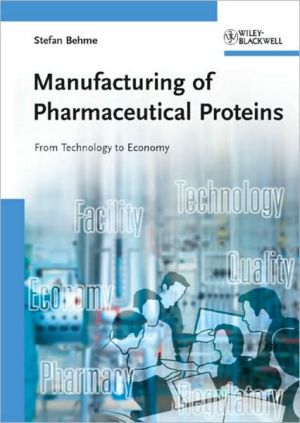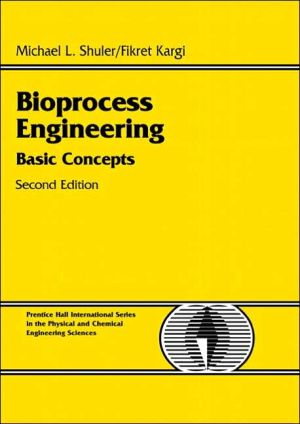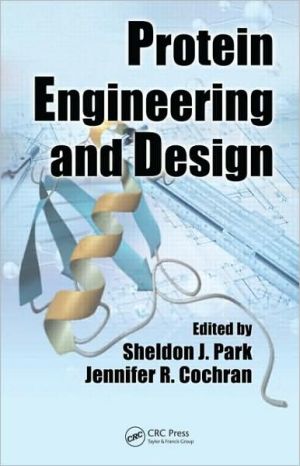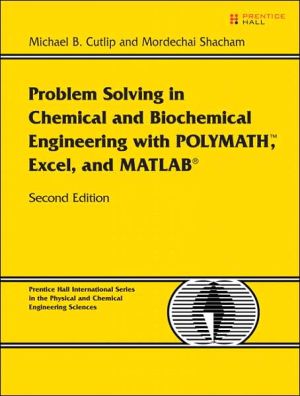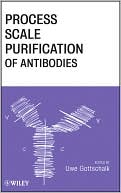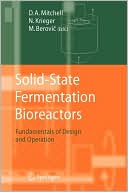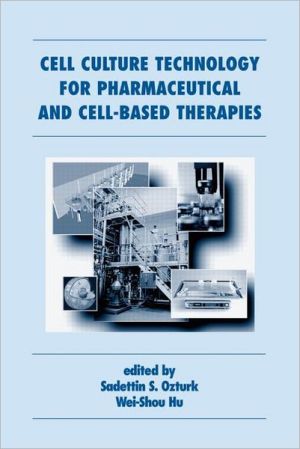Manufacturing of Pharmaceutical Proteins: From Technology to Economy
This comprehensive introduction covers all aspects of biopharmaceutical manufacturing, including legal and regulatory issues as well as costing procedures. Written by a leading expert at one of the largest pharmaceutical companies worldwide, this practical text is aimed at a wide audience, ranging from libraries, via biotech companies to students and technicians planning to enter biopharmaceutical manufacturing. In addition, it is well suited for academic teaching as well as internal training...
Search in google:
This comprehensive introduction covers all aspects of biopharmaceutical manufacturing, including technology and facilities, GMP and regulatory issues, as well as costing and timeline aspects for supply chain implementation. Written by a leading expert at one of the largest pharmaceutical companies worldwide, this practical text is aimed at a wide audience ranging from libraries, via biotech companies to students and technicians planning to enter biopharmaceutical manufacturing. In addition, it is well suited for academic teaching as well as internal training within larger biotech or pharmaceutical companies.
Preface. Part One: Introduction. 1. Biopharmaceutical Production: Value Creation, Product Types and Biological Basics. 1.1 Role of Production in Pharmaceutical Biotechnology. 1.2 Product Groups. 1.3 Basics of Biology. Part Two: Technology. 2. Manufacturing Process. 2.1 Role of the Manufacturing Process in Biotechnology. 2.2 Process Schematic and Evaluation. 2.3 Cell Bank. 2.4 Fermentation. 2.5 Purification. 2.6 Formulation and Filling. 2.7 Labeling and Packaging. 3. Analytics. 3.1 Role of Analytics in Biotechnology. 3.2 Product Analytics. 3.3 Process Analytics. 3.4 Environmental Monitoring. 3.5 Raw Material Testing. 3.6 Product Comparability. Part Three: Pharmacy. 4. Pharmacology and Drug Safety. 4.1 Action of Drugs in Humans. 4.2 Routes and Forms of Administration. 4.3 Drug Study. 4.4 Path of the Drug from the Manufacturer to Patients. 4.5 Drug Safety. Part Four: Quality Assurance. 5. Fundamentals of Quality Assurance. 5.1 Basic Principles. 5.2 Benefit of Quality Assurance Activities. 5.3 Quality Management According to ISO 9000. 5.4 Structure of Quality Management Systems. 5.5 Quality Management System Components in the Pharmaceutical Area. 5.6 Quality Assurance in Development. 6. Quality Assurance in Manufacturing. 6.1 GMP. 6.2 Operative Workflows under GMP Conditions. 6.3 Production of Investigational Drugs. Part Five: Pharmaceutical Law. 7. Pharmaceutical Law and Regulatory Authorities. 7.1 Fields of Pharmaceutical Law. 7.2 Bindingness of Regulations. 7.3 Authorities, Institutions and their Regulations. 7.4 Official Enforcement of Regulations. 7.5 Drug Approval. Part Six: Production Facilities. 8. Facility Design. 8.1 Basic Principles. 8.2 GMP-Compliant Plant Design. 8.3 Basic Concepts for Production Plants. 8.4 Clean and Plant Utilities. 8.5 Equipment Cleaning. 8.6 Clean-Rooms. 8.7 Automation. 8.8 Quality Control Laboratories. 8.9 Location Factors. 9. Planning, Construction and Commissioning of a Manufacturing Plant. 9.1 Steps of the Engineering Project. 9.2 Project Schedules. 9.3 Cost Estimates. 9.4 Organization of an Engineering Project. 9.5 Successful Execution of an Engineering Project. 9.6 Legal Aspects of Facility Engineering. Part Seven: Economy. 10. Product Sales and Manufacturing Costs. 10.1 Lifecycle of a Drug. 10.2 Position of the Manufacturing Costs in the Overall Cost Framework. 10.3 Manufacturing Costs. 11. Investments. 11.1 Basic Principles. 11.2 Value-Benefit Analysis. 11.3 Investment Appraisal. 12. Production Concept. 12.1 Capacity Planning. 12.2 Dilemma of In-House Manufacturing. 12.3 Aspects of Manufacturing Out-Sourcing. 12.4 Make-or-Buy Analysis. 12.5 Process Optimization after Market Launch. 12.6 Supply-Chain Management. References. Index of Abbreviations. Index.
